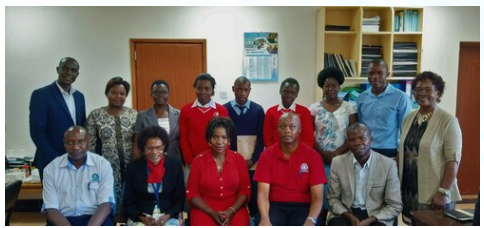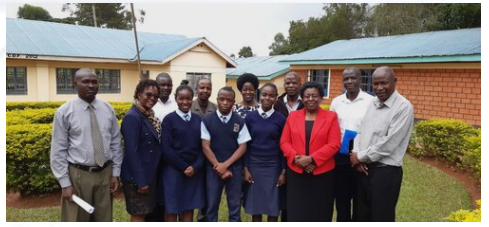Project IMPACT is rigorous, relevant, equitable, collaborative, and transformative. It uses the strategy of a synergistic collaboration between Sam Houston State University (SHSU) and Masinde Muliro University of Science and Technology (MMUST) in Kenya. As a liaison between these institutions, the Diversity Education Institute (DEI) in Kenya will play an instrumental role in facilitating this collaboration.


Project Impact builds upon the established legacy of SHSU teacher education programs in the area of educational research as well as the strengths of the collaborating institutions. It reflects SHSU’s College of Education conceptual framework which stresses candidates’ ability to provide effective and quality education to diverse learners using culturally responsive methodologies. SHSU and its collaborators bring the best available research, strategies, and practices in teaching and learning for Project Impact to nurture the mutual inquiry, improvement, and leadership development of educators in Kenya.

The collaborative aspect of the project allows multiple voices to be heard and disciplinary perspectives to be represented. According to the East Africa Community Vision 2050, education is a necessary condition to equip the youth with the right skills to enter the workforce.
Project Impact aims at contributing to this vision by investing in educational research that is transformative, methodologically rigorous, and that helps create a better society. A total of twenty-four high school teachers (24 from 3 counties in the Western region of Kenya) will be selected to be trained as fellow researchers to be actively engaged in the implementation of Project Impact goals and objectives. Community members from each country will be selected to participate in the project’s community-based participatory research activities.
Project Impact has three main goals. These are:
i) implement a professional development educational research program for in-service teachers to become research fellows;
ii) train these in-service teachers on how to document the impact of teaching English Learners’ (ELs) literacy and STEM content academic success and use a critical pedagogical and a community based participatory research approach;
iii) train the participating in-service teachers to use the project-based methodology to sustain community and ELs’ family engagement to support students’ success in STEM content
Principal Investigators (PI) for Project Impact from SHSU in collaboration with their colleagues from MMUST and DEI will select 24 teachers who will become research fellows’ participants in this project. Five hundred (500) students in these teachers’ classrooms will constitute the experimental group and an identical group will form the control group of Project Impact. Both groups will benefit from STEM-based tablets and resources. Project collaborators will work together to implement the project’s goals and objectives, disseminate findings, and collaborate to ensure the sustainability of Project Impact. If funded, Project Impact will cover the cost of personnel, travel, sub-awards for collaborators, STEM resources, as well the cost of stipends for 24 participating teachers who will also receive training and STEM resources related to the project’s research design. Overall, the project will invest $987 per student for 500 students total in Kenya. The duration of Project Impact is from January 2021 to the end of Summer 2022.
